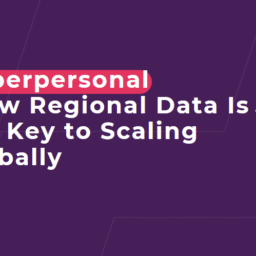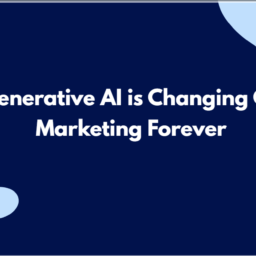As the digital economy continues to evolve, marketing strategies are adapting to new technologies and consumer expectations. Among these innovations, decentralized autonomous organizations (DAOs) are emerging as a potential game-changer for affiliate marketing. This blog explores the concept of decentralized affiliate marketing, how DAOs function, and whether they can effectively replace traditional affiliate programs.
Understanding Decentralized Affiliate Marketing
Decentralized affiliate marketing leverages blockchain technology and DAOs to create a more transparent, efficient, and equitable affiliate marketing ecosystem. In this model, affiliates earn commissions for driving traffic and sales to merchants without the need for intermediaries or centralized platforms.
Key Features of Decentralized Affiliate Marketing
- Transparency: All transactions and interactions are recorded on the blockchain, allowing for verifiable tracking of sales and commissions.
- Smart Contracts: Automated agreements executed on the blockchain ensure that affiliates are paid accurately and promptly based on predefined conditions.
- Reduced Fees: By eliminating intermediaries, decentralized affiliate marketing can lower costs associated with traditional affiliate programs, allowing more revenue to flow to affiliates and merchants.
The Role of DAOs in Affiliate Marketing
What is a DAO?
A decentralized autonomous organization (DAO) is an organization represented by rules encoded as a computer program that is transparent, controlled by organization members, and not influenced by a central authority. DAOs operate through smart contracts on a blockchain, enabling decentralized decision-making and governance.
How DAOs Facilitate Affiliate Marketing
- Community Governance: DAOs allow stakeholders—affiliates, merchants, and consumers—to participate in decision-making processes, ensuring that the affiliate program aligns with the interests of all parties involved.
- Distributed Rewards: DAOs can implement innovative reward structures, where affiliates earn tokens for their contributions, which can be used within the ecosystem or traded on exchanges. This creates a more engaging and participatory model.
- Democratized Access: By removing traditional barriers to entry, DAOs enable a broader range of individuals to become affiliates, fostering diversity and innovation within the affiliate marketing landscape.
Benefits of Decentralized Affiliate Marketing
1. Enhanced Trust and Transparency
The transparency inherent in blockchain technology allows all parties to verify transactions and commission payouts. This reduces disputes and fosters trust between affiliates and merchants.
2. Lower Costs
Without intermediaries taking a cut of commissions, both affiliates and merchants can enjoy higher margins. This can lead to more competitive commission structures, ultimately benefiting all participants.
3. Flexibility and Innovation
DAOs can quickly adapt to changes in the market or consumer behavior, allowing for innovative marketing strategies that traditional programs may struggle to implement. This flexibility can lead to more effective campaigns and better alignment with affiliate goals.
4. Global Reach
Decentralized affiliate programs can operate without geographic restrictions, enabling merchants to tap into global markets and affiliates to work with brands from anywhere in the world.
Challenges and Considerations
1. Technical Complexity
Implementing a decentralized affiliate marketing system requires a solid understanding of blockchain technology and smart contracts. This may pose a barrier for some businesses and affiliates who are not tech-savvy.
2. Regulatory Uncertainty
As with many blockchain-based solutions, decentralized affiliate marketing faces potential regulatory challenges. The evolving legal landscape surrounding cryptocurrencies and DAOs can create uncertainty for participants.
3. Market Adoption
While DAOs and decentralized solutions are gaining traction, widespread adoption still faces resistance from traditional players in the affiliate marketing space. Education and awareness will be crucial for driving acceptance.
Can DAOs Replace Traditional Affiliate Programs?
While decentralized affiliate marketing powered by DAOs offers numerous advantages, it is unlikely to completely replace traditional affiliate programs in the near term. Instead, we may see a coexistence of both models, with decentralized solutions appealing to a specific segment of the market.
The Future of Affiliate Marketing
- Hybrid Models: Many businesses may adopt hybrid models that incorporate both decentralized and traditional affiliate marketing strategies to maximize reach and effectiveness.
- Increased Transparency: Even traditional programs may adopt elements of blockchain technology to enhance transparency and trust with affiliates.
- Evolution of Consumer Expectations: As consumers become more aware of decentralization and the benefits it offers, they may prefer brands that embrace these innovative practices, pushing traditional programs to adapt.
Conclusion
Decentralized affiliate marketing and DAOs represent an exciting frontier in the marketing landscape. While they may not entirely replace traditional affiliate programs, they offer compelling advantages that could reshape how brands and affiliates interact in the digital economy.
As the technology matures and the market evolves, businesses that embrace decentralized solutions may find themselves at the forefront of a new era in affiliate marketing—one characterized by transparency, efficiency, and community-driven governance. For marketers and affiliates alike, staying informed about these developments will be essential to navigating the future of the industry.



